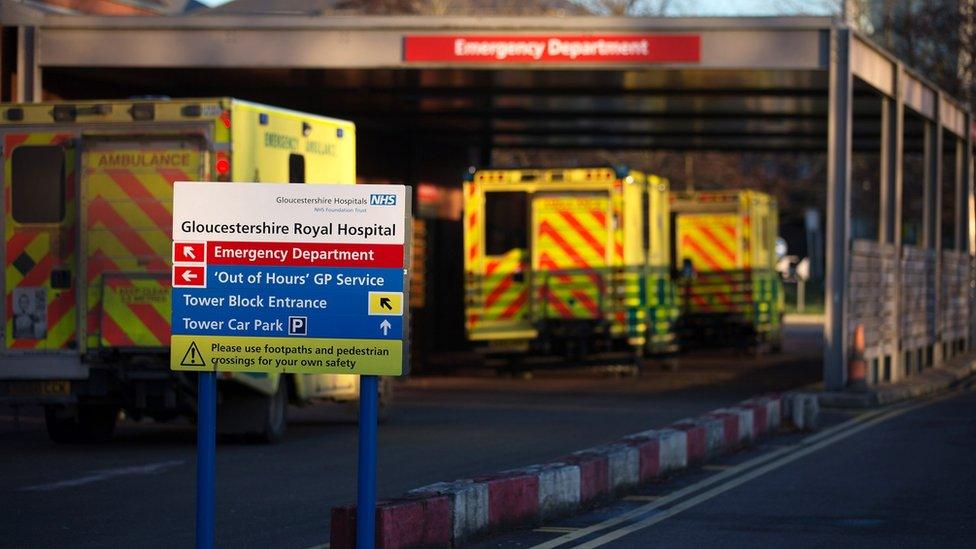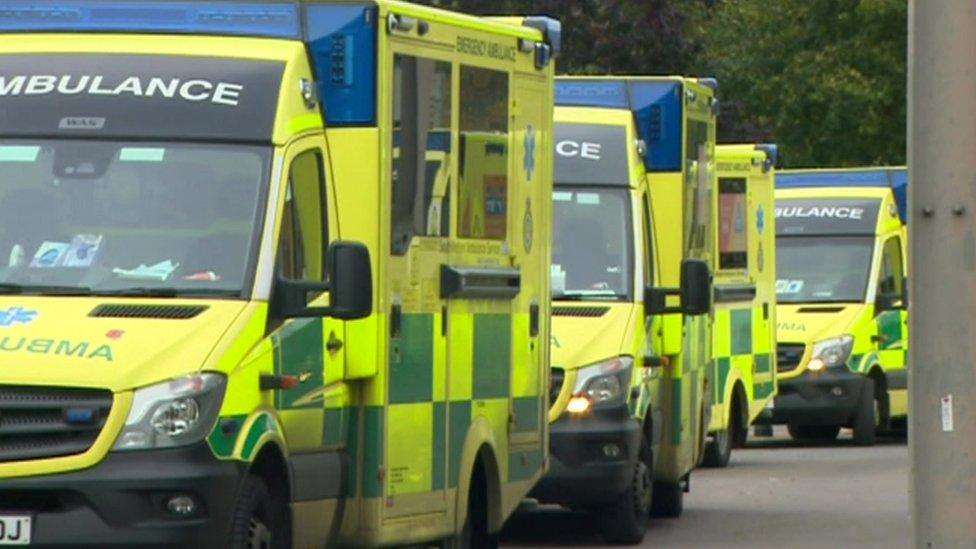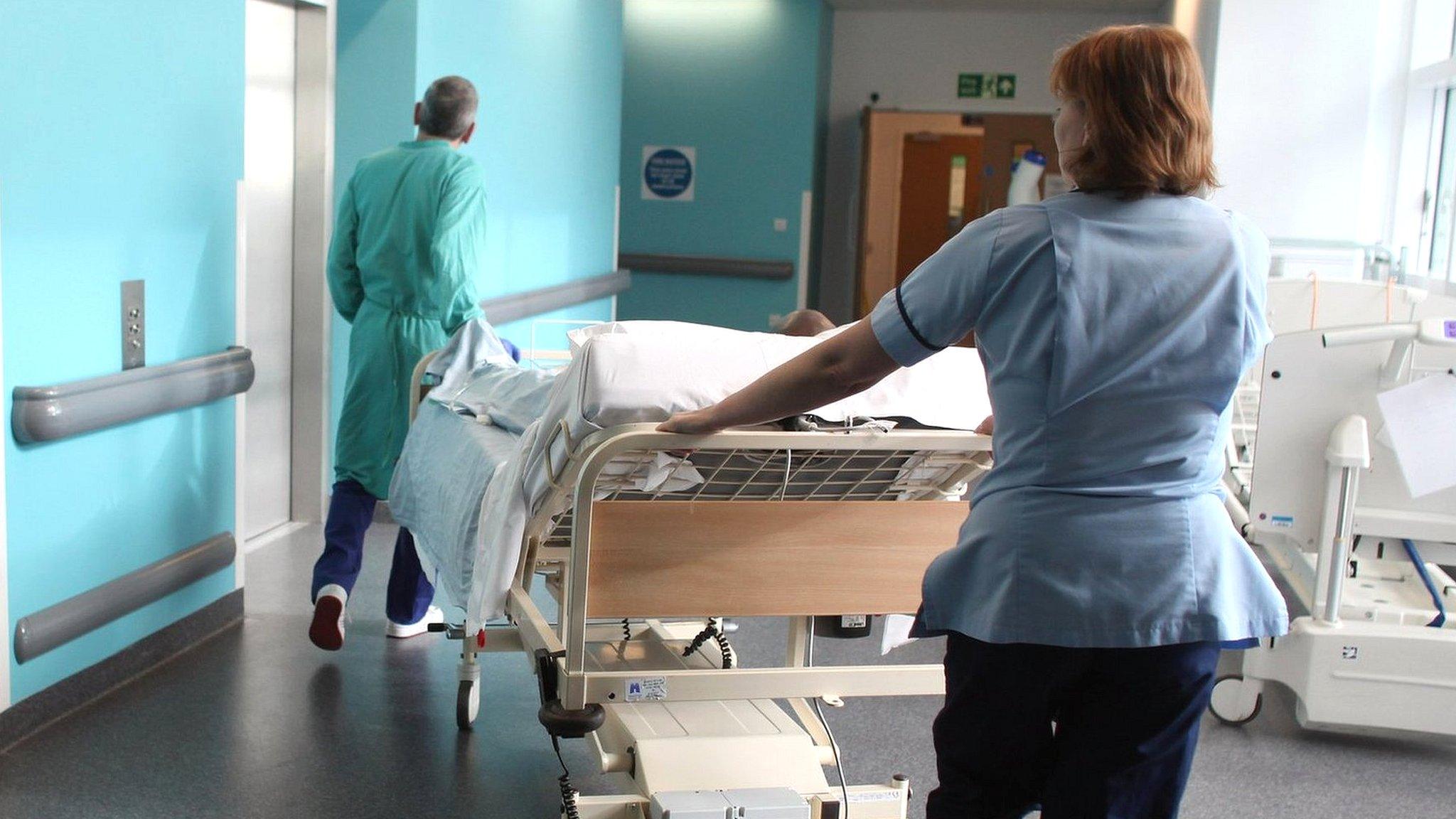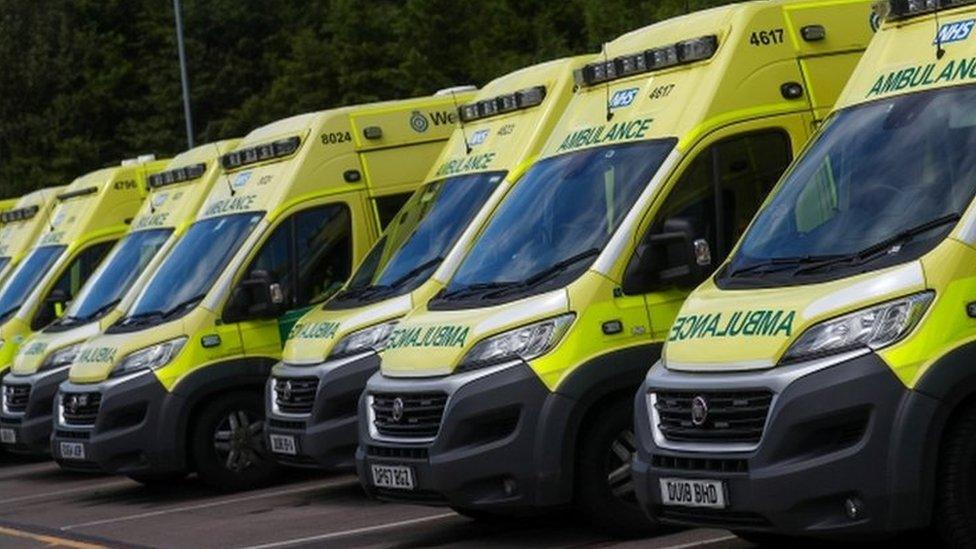Gloucestershire ambulance handover delays add up to 70 days
- Published

One of the main reasons for the delays is the difficulty of freeing up beds within the hospital
An ambulance trust lost 1,700 hours of working time in one week in April due to vehicles waiting outside a hospital.
The BBC has discovered that the figure was reached twice during April as ambulance crews waited outside Gloucestershire Royal Hospital in Gloucester to handover patients.
That equates to about 70 days worth of waiting time each week.
The trust that runs the hospital said it was facing "significant challenges" as it dealt with "unrelenting demand".
Figures show that since the end of January, South Western Ambulance Service NHS Foundation Trust (SWASFT) has lost a minimum of 800 hours of working time each week due to ambulances having to wait outside Gloucestershire Royal Hospital, unable to get patients into A&E.
The worst two weeks fell in April, each of them leading to 1,700 hours of lost time.
The national target for transferring patients from ambulances in to A&E is 15 minutes, but in some cases people had to wait up to 10 hours in ambulance queues in Gloucester.
The figures put Gloucestershire Royal Hospital far ahead of other hospitals in the West in terms of hours lost.
In some weeks, Gloucester has had seven times the number of lost hours as Great Western Hospital in Swindon or the two main hospitals in Bristol.
At one point, there was an average of 200 people medically fit for discharge but unable to be moved on.
This can occur for a number of reasons including waiting for social care plans, spaces in other hospitals or homes and unsuitable places to return to.
Cheltenham General Hospital consistently has the second-highest number of lost hours in the West, recording 100 lost hours in its poorest week.
Response targets missed
SWASFT currently has the the worst response times in England, with figures showing that in May, its average response time for the most serious incidents was 10 minutes, 44 seconds. The national target is seven minutes.
For category two incidents, including heart attacks and strokes, the average was 56 minutes, well in excess of the national target of 18 minutes.

The figures from Gloucestershire are some of the worst in the country
Earlier in July, Gloucestershire Police and Crime Commissioner, Chris Nelson, revealed officers are taking heart attack patients to hospital in police cars.
In April, head of Gloucester's NHS Trust, Deborah Lee, was driven to hospital by her husband with a suspected stroke as she was concerned about ambulance queues.
'Much more to do'
Gloucestershire Hospitals NHS Trust foundation medical director and acting chief executive Professor Mark Pietroni said the health and care system "remains under intense pressure...in response to unrelenting demand".
"Emergency departments at Cheltenham and Gloucester are constantly busy and the team work tirelessly to ensure people are cared for safely," he said
"We work very closely with our colleagues in the ambulance service to reduce handover delays to ensure ambulances are available as quickly as possible to respond to 999 calls.
"By working together over the last two months, we have reduced handover delays by 70%, from around 240 hours per day down to an average of 70 hours, but for each delay this impacts on a patient and staff and we recognise there is much more we need to do," added Prof Pietroni.
He said the trust was working to support people to return home from hospital sooner by increasing staff numbers in the hospital-to-home teams and asking relatives and carers "to do everything they can".
'Under sustained pressure'
A spokesperson for SWASFT said the trust is working to ensure crews can get back out on the road as quickly as possible.
"The whole health and social care system has been under sustained pressure for many months now, meaning patients are having to wait longer for an ambulance than they would expect.
"Our performance has not returned to pre-pandemic levels, partly due to handover delays caused by capacity issues in hospitals, and in community and social care.
"This means it's currently taking us too long to get an ambulance to patients," they added.
Gloucestershire County Council declined to comment.

Follow BBC West on Facebook, external, Twitter, external and Instagram, external. Send your story ideas to: bristol@bbc.co.uk , external
- Published8 May 2022

- Published17 March 2022

- Published11 February 2022
